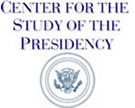Engagement is the search for win-win outcomes to non-zero-sum games. As any game theorist can tell you, a key to reaching those outcomes is communication, and the communication is most fruitful when there is mutual trust. Well, thanks to Assange, many nations will now hesitate to speak candidly with us, fearing that their private utterances might go public.
Communication, and trust, may also be cooled by our recently revealed appraisals of foreign leaders. I’m guessing the Turks won’t warm to the cable from Ankara that looked forward to a day when “we will no longer have to deal with the current cast of [Turkish] political leaders, with their special yen for destructive drama and rhetoric.” And Vladimir Putin can’t be liking our depiction of him as a slacker thug.
Many of our foreign relations will prove resilient. Longstanding European allies will get over the insults, and will eventually accept assurances that we’re tightening the security of our missives. But such ready rapprochement is less likely with the Russias and Turkeys of the world — nations that are more culturally remote from us and were less secure in our friendship to begin with. In other words, the relationships that will suffer the deepest damage are the most fragile ones, the ones that Obama entered office hoping to mend with engagement.
These include many of the relationships that the neoconservatives who shaped Bush’s foreign policy were most willing to risk. Neocons have often encouraged policies and utterances that threatened relations with Russia and Turkey, as well as China, Iran and so on. Indeed, neoconservatism sometimes seems devoted to exacerbating the world’s major geopolitical fault lines. And now WikiLeaks has advanced the exacerbation. Maybe Assange, when he has time for some fresh conspiracy theorizing, can look into the possibility that neocons have implanted electrodes in his brain.
From where I stand — a position of emphatic anti-Bushism — this is a pretty serious charge: aiding and abetting anti-anti-Bushism. But, from this same standpoint, there’s a defense of Assange to be made.
The biggest lesson from all of this is a fact that’s already dawned on Tiger Woods, Michael Phelps and Mel Gibson: privacy ain’t what it used to be. Technology has made secrets hard to keep.
Sure, we can better insulate our channels of communication — for starters by not giving Army privates access to the family jewels. But we don’t want to fall into Assange’s trap of constricting our internal communications to a dysfunctional extent — and, besides, we can’t control what foreign bureaucracies are doing with shared secrets. We have to face the fact that secrets are less keepable in the age of the Internet, when a single malcontent in any organization can share newsworthy information with the whole world.
So incendiary secrets should be avoided. It’s best not to lie about what our troops in Pakistan are doing, and not to conspire with Yemen’s government to deceive Yemenis. For one thing, such deceptions, when exposed, embitter foreigners toward America. And these days grassroots hatred of America, especially in Muslim countries, is perhaps our biggest enemy — being, as it is, the wellspring of terrorism.
If our government took this guidance, and quit keeping explosive secrets about what it’s doing abroad, then what it’s doing abroad would change. If our troops’ presence in Pakistan was going to be visible, Pakistan might not let them into the country. And the Yemeni government might veto transparently American drone strikes.
This would mean killing fewer terrorists in the short run, but it would probably mean creating way fewer of them in the long run. Certainly (as the journalist John Judis has suggested) it would mean doing less of what fueled bin Laden’s anti-American wrath in the first place: having a military presence in Muslim countries, a presence that sometimes entails collaborating with repressive regimes and thus absorbing some of the hatred they inspire.
I don’t know if this change of course would make up for the considerable short-term damage wrought by WikiLeaks — the harm done to fragile and crucial relations with other states, the blowback that even now is starting to well up in Yemen, Pakistan and elsewhere. But if it does, then Assange’s initially pro-neocon impact could be dwarfed by his longer-term, more benign influence. And his karma, as I calculate it, would move into positive territory.
For that to happen — for the United States to respond wisely to the WikiLeaks fiasco — American policymakers will first have to realize that Assange himself isn’t all that important. If he had never been born, they would still eventually have to adapt to the age of transparency, to a world in which expedient lies to cover expedient collaborations with dubious regimes are a long-term threat to our national security. Sooner or later, America was bound to wake up to the implications of modern technology. Julian Assange just made it a particularly rude awakening.
Offputtingly grandiose as Assange’s online manifesto is, it arguably envisions exactly the effect that Judis and I are talking about. Assange’s definition of “authoritarian regime” seems fluid enough to simultaneously refer to America and the “neo-imperialist” network America has assembled. And if that’s the case, then the fraying of that network would be an example of what his paper gleefully envisions: an “authoritarian regime” — i.e. the network of America and certain allies — finds that transparency has rendered the internal information-processing that sustains it no longer viable, and so collapses. (Assange, by the way, seems to see all authoritarian regimes as consisting of conspiracies among their constituents — and since conspiracies always require secrets, transparency is anti-conspiracy and hence, in Assange’s paradigm, anti-authoritarian.) Final note: the WikiLeaks cable revealing America’s secret deal with Pakistan is here.






